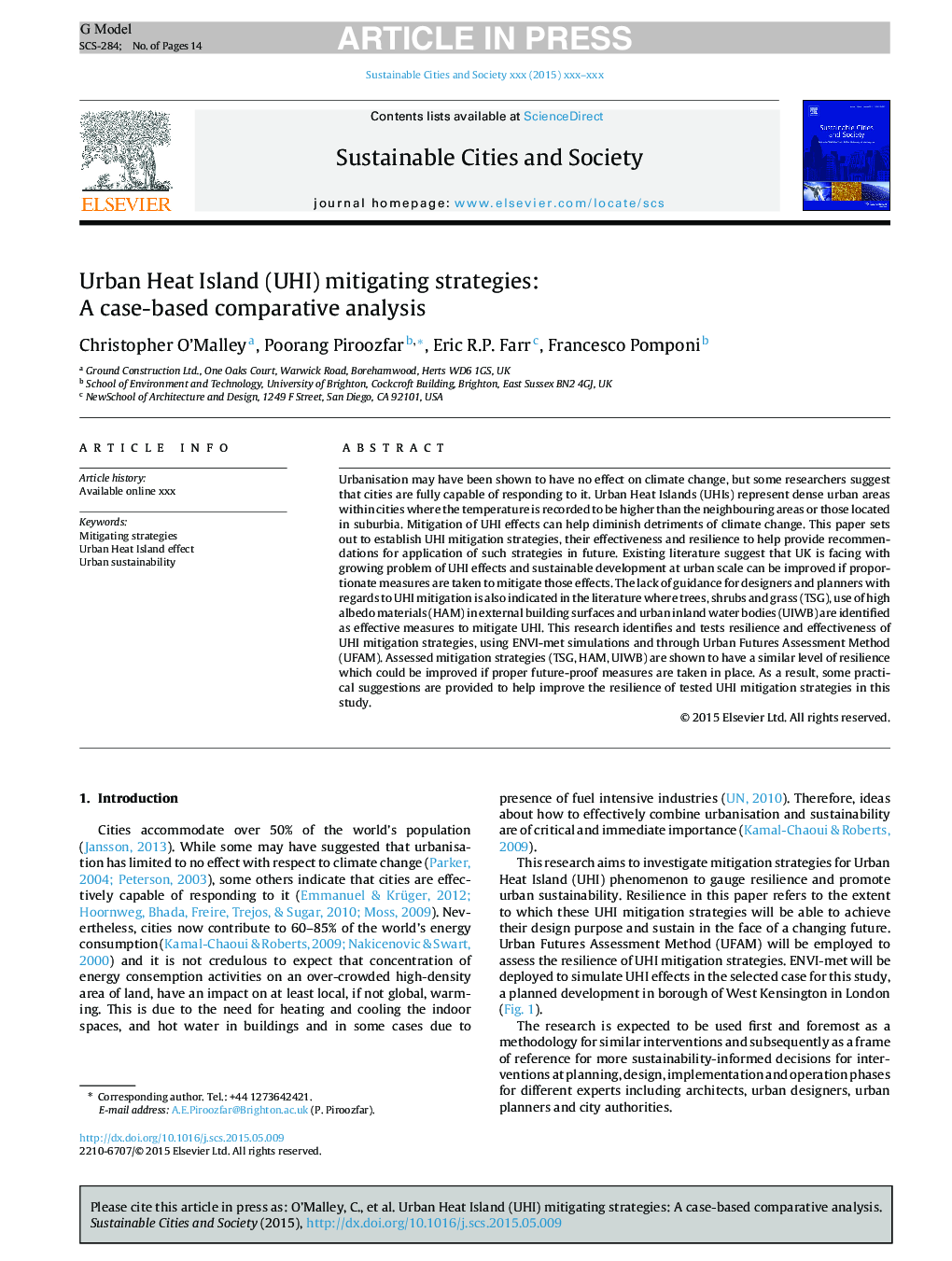| Article ID | Journal | Published Year | Pages | File Type |
|---|---|---|---|---|
| 6775932 | Sustainable Cities and Society | 2015 | 14 Pages |
Abstract
Urbanisation may have been shown to have no effect on climate change, but some researchers suggest that cities are fully capable of responding to it. Urban Heat Islands (UHIs) represent dense urban areas within cities where the temperature is recorded to be higher than the neighbouring areas or those located in suburbia. Mitigation of UHI effects can help diminish detriments of climate change. This paper sets out to establish UHI mitigation strategies, their effectiveness and resilience to help provide recommendations for application of such strategies in future. Existing literature suggest that UK is facing with growing problem of UHI effects and sustainable development at urban scale can be improved if proportionate measures are taken to mitigate those effects. The lack of guidance for designers and planners with regards to UHI mitigation is also indicated in the literature where trees, shrubs and grass (TSG), use of high albedo materials (HAM) in external building surfaces and urban inland water bodies (UIWB) are identified as effective measures to mitigate UHI. This research identifies and tests resilience and effectiveness of UHI mitigation strategies, using ENVI-met simulations and through Urban Futures Assessment Method (UFAM). Assessed mitigation strategies (TSG, HAM, UIWB) are shown to have a similar level of resilience which could be improved if proper future-proof measures are taken in place. As a result, some practical suggestions are provided to help improve the resilience of tested UHI mitigation strategies in this study.
Related Topics
Physical Sciences and Engineering
Energy
Renewable Energy, Sustainability and the Environment
Authors
Christopher O'Malley, Poorang Piroozfar, Eric R.P. Farr, Francesco Pomponi,
